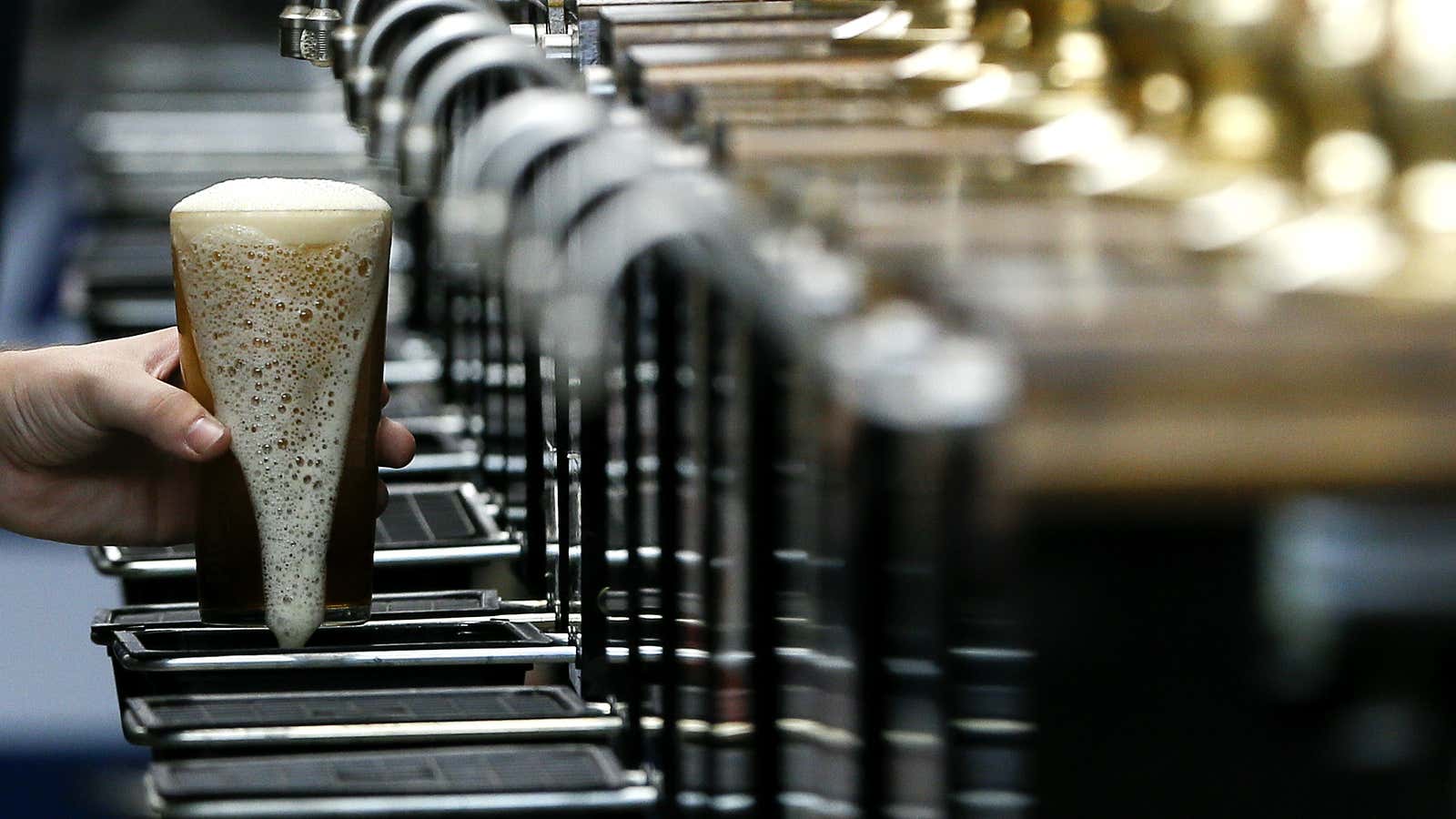The UK’s supreme court today (Nov. 15) upheld the Scottish government’s controversial legislation that would establish a government-controlled minimum price per unit of alcohol.
The ruling allows the government to put into practice a theory that if you set the price of alcohol just right, it will stem alcohol-related health problems without hurting the booze economy. In fact, a health study out of the University of Sheffield found that setting the minimum price per unit of alcohol at a 50-pence would be just right.
The formal policy (pdf), adopted by the government in 2012, mandates that the price of an alcoholic beverage is calculated by using an equation that includes that government-set minimum price per unit (MPU), the strength of the alcohol (S), and the volume in liters (V). The equation looks like this:
MPU x S x V x 100 = the price.
“Minimum unit pricing would simply set a floor price for a unit of alcohol, meaning it can’t be sold for lower than that,” a Scottish government website states. “The more alcohol a drink contains, the stronger it is and therefore the more expensive it will be.”
The legislation has been challenged in court by the Scottish Whisky Association, which fought vigorously to prevent it from becoming law. However, upon learning of the court’s decision, the industry group conceded.
“We accept the Supreme Court’s ruling on minimum unit pricing of alcohol in Scotland,” the group said in a statement. “Looking ahead, the Scotch whisky industry will continue to work in partnership with the government and the voluntary sector to promote responsible drinking and to tackle alcohol-related harm.”
The price would only apply to alcohol sold in stores but not in pubs and restaurants. Over time, it is expected that the policy would result in 120 fewer deaths annually and 2,000 fewer hospitalizations from alcohol-related abuse, according to The Guardian. In 2016 there were 7,327 alcohol-related deaths in the UK, which calculates to 11.7 deaths per 100,000 people. The deaths were most prominent in Scotland, according to the Office for National Statistics.
The government goes on to say minimum unit pricing should not be considered a tax. Rather, it describes it as “a targeted way of making sure alcohol is sold at a sensible price.”
But that’s all rosy thinking, according to an analysis written in The Spectator, a conservative British magazine.
“Advocates of minimum pricing might hope that their policy will put an end to alcoholism and street drinking, but the reality-based community knows that isn’t going to happen,” the magazine writes. “The question is what will the heaviest drinkers turn to?”
That remains to be seen. In the meantime, experts will be watching closely to see just how effective the Scottish model is at tackling alcohol-related deaths and binge drinking.
